Despite mother's pleas, search efforts are over for missing St. Lawrence fisherman
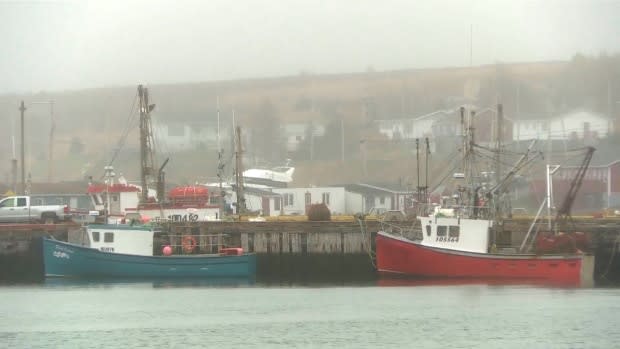
After the deaths of three fishermen at sea, the southern Newfoundland town of St. Lawrence is in shock, while the mother of a missing fourth man is pleading with officials to continue a search for her son.
The bodies of Edward Norman, 67; his son, Scott Norman, 35; and his nephew, Jody Norman, 42, were recovered Tuesday.
The search for family friend Isaac Kettle ended 8:45 p.m. Wednesday night.
The Canadian Coast Guard has now turned the investigation over to the RCMP as a missing person case.
In a news release issued Thursday afternoon, the RCMP said it will not be conducting its own search.
"In this situation, all efforts to find the missing person were exerted by the coast guard in an exhaustive search of an extremely large area of the ocean. Given the comprehensive efforts of the coast guard, the RCMP will not be conducting a search," the release reads.
"We extend our deepest condolences to the families and loved ones of the crew members of the Sarah Anne and to the Town of St. Lawrence."
But Kettle's mother, Aundriette Kettle, said Thursday she wants extra equipment to find and raise the Sarah Anne from the ocean, as she believes her son's body is still on the vessel.
"Them other bodies were found, [but] my son is on that boat. He needs to be brought up, they [need] to get cameras, things like that, on that ocean to bring him up," Kettle said.
"Isaac needs to be home to us, his family."
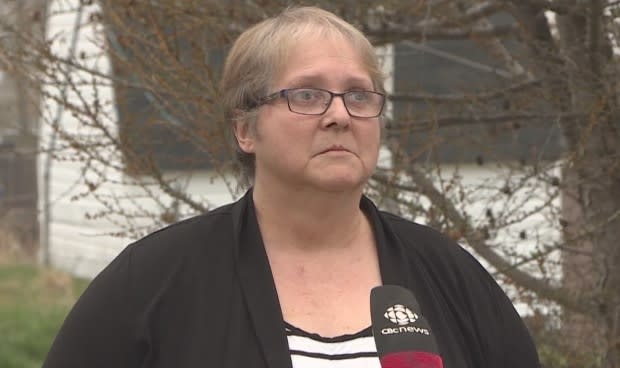
When the coast guard called off the search on Wednesday evening, Kettle was devastated, and she said her son should be found, no matter the cost.
"How would you feel, how would any mother feel without their son? As far as I'm concerned, he needs to be home," she said.
"And the government needs to come up with whatever money, if it's $100,000, they [need] to bring Isaac home right now."
After contacting Lt.-Gov. Judy Foote and MHAs, Kettle said she is now waiting on a phone call from Premier Dwight Ball to plead her case.
How would you feel, how would any mother feel without their son? - Aundriette Kettle
She said her son was well-known in his community and was quick to lend a hand for those who needed it, and deserves to be brought back to St. Lawrence.
"Isaac went out of his way for anyone. If anyone [else] was out there when that happened, he'd be on his boat and gone," she said.
"He was good to everyone in this harbour."
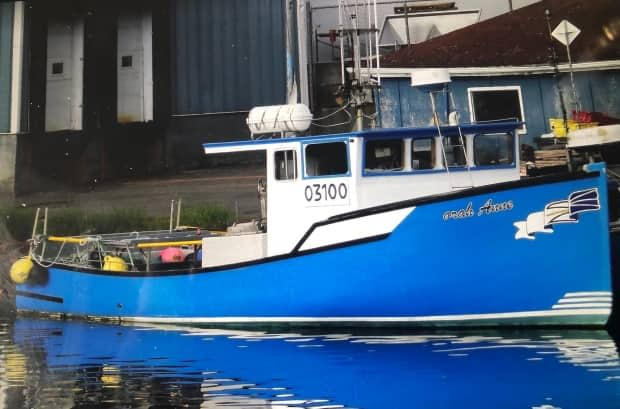
'A very solemn time for harvesters'
Brenda Greenslade, executive director of the Newfoundland and Labrador Fish Harvesting Safety Association, says the impact of the tragedy in the waters off St. Lawrence is felt across the province.
"It's a dangerous industry and we've certainly had more than our share of fatalities over the years," she said.
"It's just gut-wrenching. It's a very solemn time for harvesters — they're a very tight-knit community and it's just cast a blanket of sadness over the whole industry."
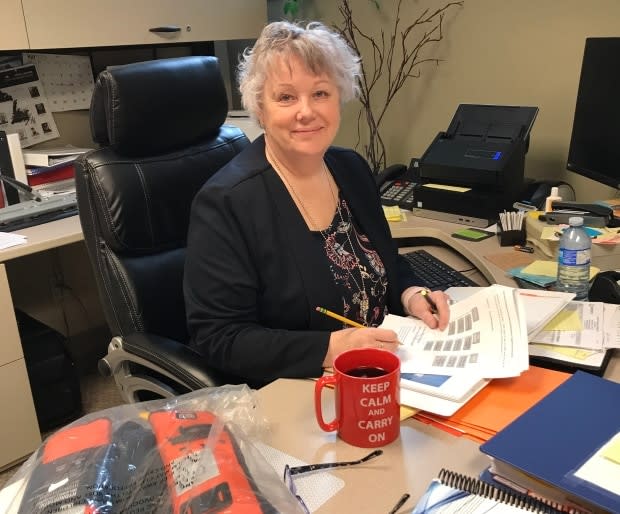
Greenslade said over the past 10 years in Newfoundland and Labrador, there have been 21 fatalities in the fishing industry, with two similar incidents to the Sarah Anne within the last five years.
Two bodies were recovered and two other men were lost when the Pop's Pride sank near Cape Spear in 2016, and the bodies of three men were found in Placentia Bay in 2015 after their speedboat is believed to have capsized in strong winds while hauling crab pots.
While Greenslade said reviewing past incidents can be helpful, each fishing boat and crew is different and there is risk in all parts of a fishing operation.
"We know, looking at previous incidents that have happened in the fishing industry, there's generally no single cause that dominates a tragic event. There are many, many factors that contribute to it," she said.
The Transportation Safety Board and the occupational health and safety division of ServiceNL will now do their work, Greenslade said, to try and determine the cause of the incident.
Radio beacon not on board
What is known, however, is that the Sarah Anne didn't have an emergency position-indicating radio beacon, or an EPIRB, on board. The vessel had a two-way radio instead, as regulations didn't require it to have an EPIRB.
"It helps to identify where the emergency is taking place and the coast guard uses that to determine where they need to go, but the thing is, not all fishing vessels are required to have EPIRBs," Greenslade said.
"With the two-way radio, they can issue a mayday, but if things unfold so quickly that they're not able to do that, then the EPIRB is a great device because it's automatically activated."
Transport Canada has told CBC News that planning was already in the works to make EPIRBs mandatory on all commercial fishing vessels outside sheltered waters, with the new regulations likely coming into effect within the next year.
Greenslade said fish harvesters are still getting used to new small vessel regulations introduced in the past few years, but the new rules have been helpful.
"We're talking about safety a lot more," she said.
"We have gatherings of fish harvesters and we're doing things that heighten awareness around safety in this industry."
Virtual memorial in the works
With COVID-19 changing the way funerals are held, a Roman Catholic priest in the community is looking to remember the men with an online service.
Father Nelson Boren of St. Thomas Aquinas Parish in St. Lawrence says he knew the men well as his parishioners.
Boren said he performed the marriage of one of the men in 2018.
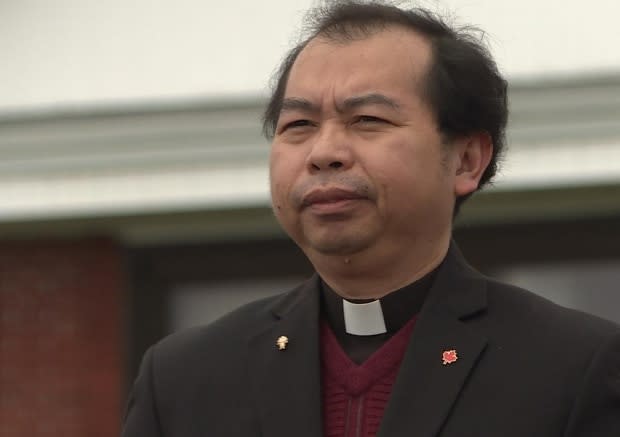
Since the pandemic began, Boren has moved his regular Sunday service online to allow his parishioners the ability to continue to pray, like many other churches across the country.
He said many have cancelled funeral services since March, but this event will be different.
"I'm waiting for the family as well, on what is their preference, but from my end I am organizing an online service," he said.
Boren said one of the first things he did upon hearing the news of the tragedy was contact the family and offer his comfort, but said there's a challenge with COVID-19 orders ongoing.
"This pandemic is affecting everyone, but now here we're facing another tragedy in the community," he said.
Boren said St. Lawrence is a family-oriented community where everyone knows each other.
"They know me and I know them and even if you are walking along the street, they would say hi and 'hello, yes b'y,'" he said.
'It would be full'
Funeral services are no small event in tight-knit, rural communities around the province.
John Norman, Edward's older brother, told CBC News on Wednesday he's hoping the provincial government's COVID-19 public health restrictions will be eased to allow for the community to come together.
"If you were allowed to get in this church here, it would be full, and it would be standing room," he said.
Norman said he's hoping government will allow for at least 20 people to gather, rather than 10 including the officiant, as outlined under current public health restrictions, or that the funeral will allow for groups of 10 people at a time to rotate through to pay their respects.
Read more from CBC Newfoundland and Labrador


